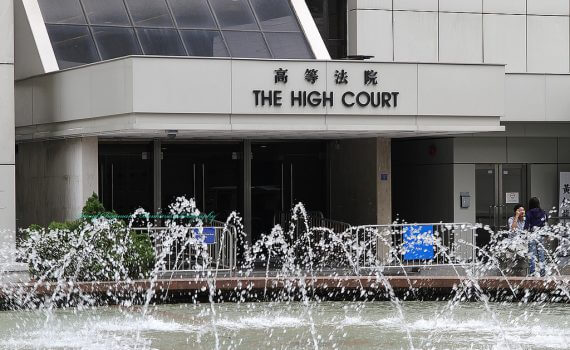Concerns over press freedom arise due to HK police's change in "media representative" definition
- By: Shameel IbrahimEdited by: Mark Chen、Cynthia Lin
- 2020-10-08
Student journalists and freelance journalists in Hong Kong worry about their press freedom in the future as they are currently excluded from the recognition of the police.

Hong Kong police announced on Sept. 22 that only journalists who have registered with the Government News & Media Information System and those from "Internationally recognized" media outlets will be identified as "media representatives."
Student media from six local universities later released a joint statement, citing the press freedom under the Basic Law, to condemn the decision.
"Article 27 of the Basic Law of Hong Kong stipulates that Hong Kong residents shall have freedom of speech, of the press and of publication," the statement read.
The statement also expressed the worry that the amendment would strip individual freelance journalists and non-mainstream media journalists of reporting rights.
Sharron Fast, a media law professor and deputy director of the Master of Journalism programme at the University of Hong Kong echoes the issue as well.
"I think the immediate impact is that it is drastically narrowing the definition of journalists," Ms Fast said.
Ms Fast added that student journalists who may not be part of a GNMIS recognized organization have a reason to worry because the frontline police officers now have "the very subjective authority to make determinations and to improve hand-picked journalists who are able to cover a protest scene."
Heung Sum-yee, a final year journalism student at the University of Hong Kong worries that there will be more events in the future that will diminish the press freedom in the city.
"A lot of exclusive news in protests was reported by freelance and online media journalists. If they are not able to report at protests, it would be a great loss for the news media industry in the city," she said.
Sheryl Lee Tiantong, a freelance journalist from Singapore, said that the issue is expected after learning the change in the police's recognition of media representatives.
"Journalists are supposed to speak truth to power so I'm not surprised that there would be powerful people trying to put limits on the press," said Ms Lee.
Shortly after the Foreign Correspondents Club issued a statement opposing the police's "restrictive new accreditation policy for journalists" on Sept. 23, the Office of the Commissioner from the Chinese Ministry of Foreign Affairs released a statement on the same day in support of the police.
The office's spokesperson opposed the "unwarranted remarks" by the FCC and urged the organization to stop "meddling" in Hong Kong's affairs under the banner of press freedom.
The spokesperson also added that there was "no such thing as absolute press freedom" and that media practitioners in the HKSAR should follow the national laws applied to Hong Kong and local laws. He also warned FCC that it should not interfere or endanger China's national security and Hong Kong's prosperity.
Upon the challenges, Police Public Relations Branch Chief Superintendent Kenneth Kwok Ka-cheun responded that the amendment will facilitate the frontline officers to verify the identity of recognized journalists.
《The Young Reporter》
The Young Reporter (TYR) started as a newspaper in 1969. Today, it is published across multiple media platforms and updated constantly to bring the latest news and analyses to its readers.

Hongkongers celebrate Mid-Autumn Festival in a socially distanced way

Civil Human Right Front demands release of 12 detained protesters and freedom of assembly




Comments